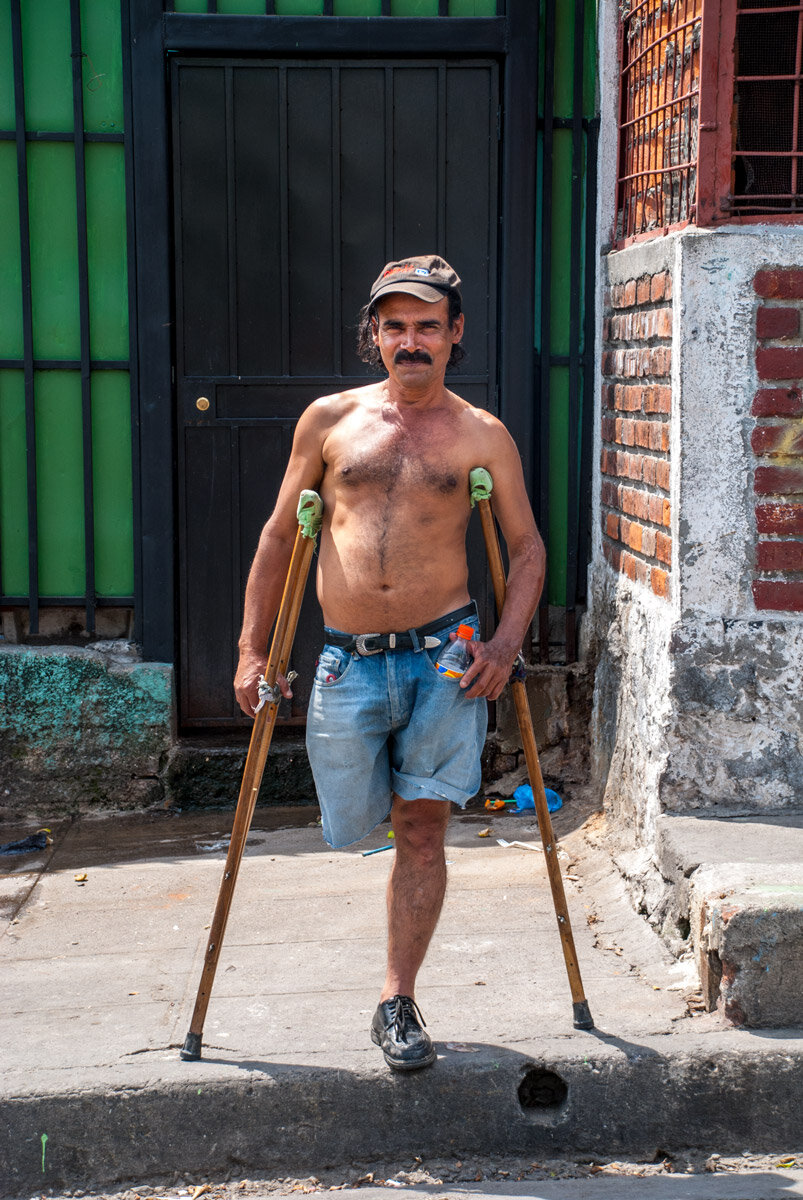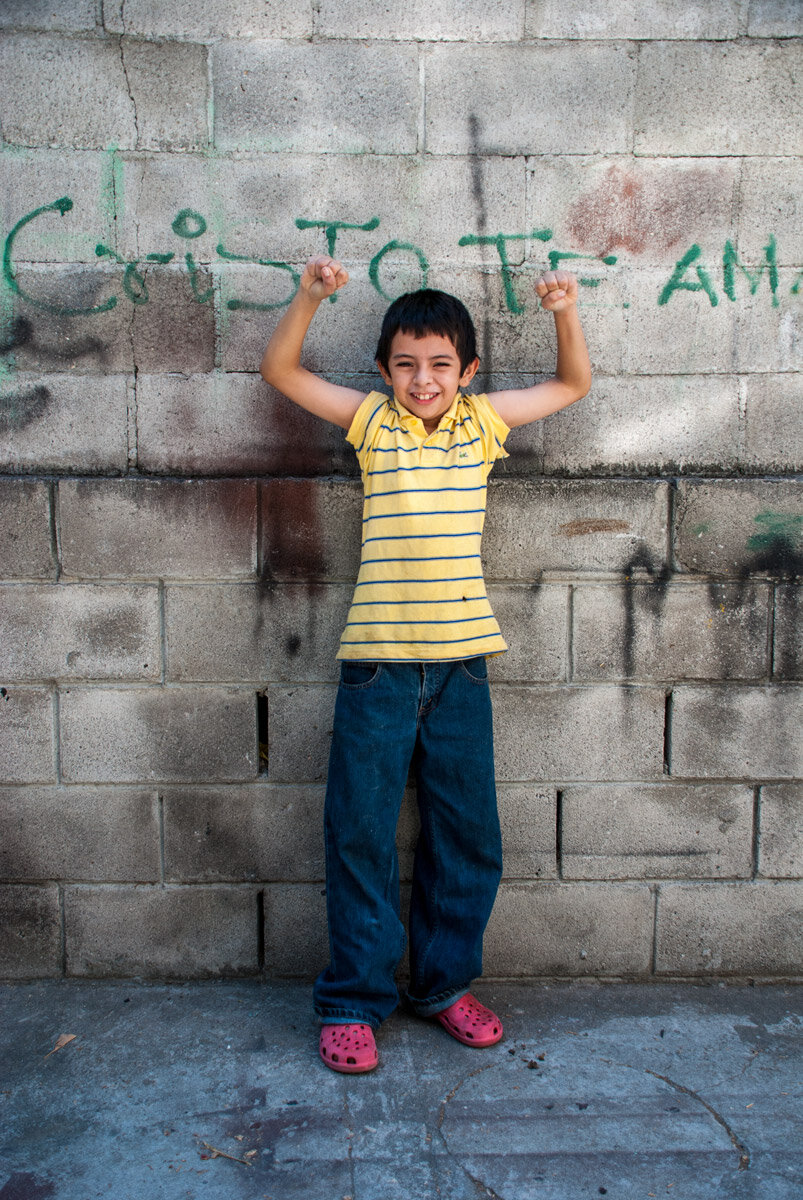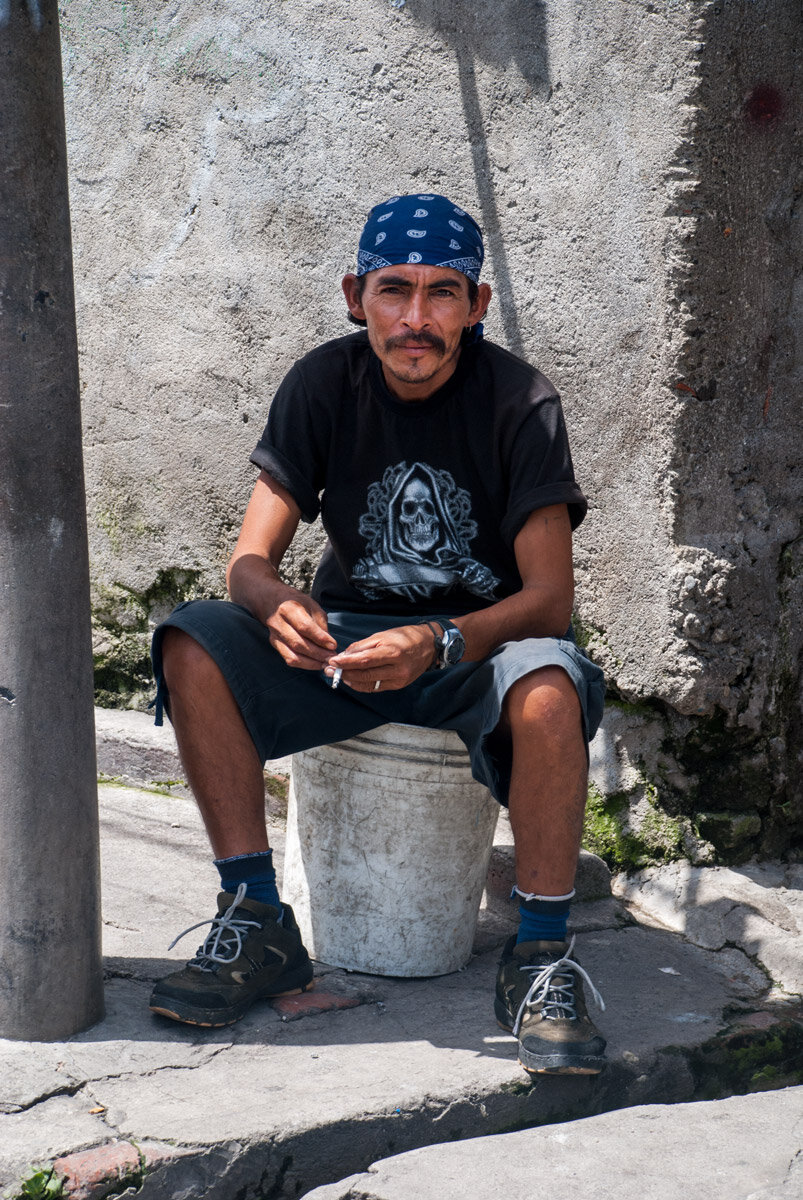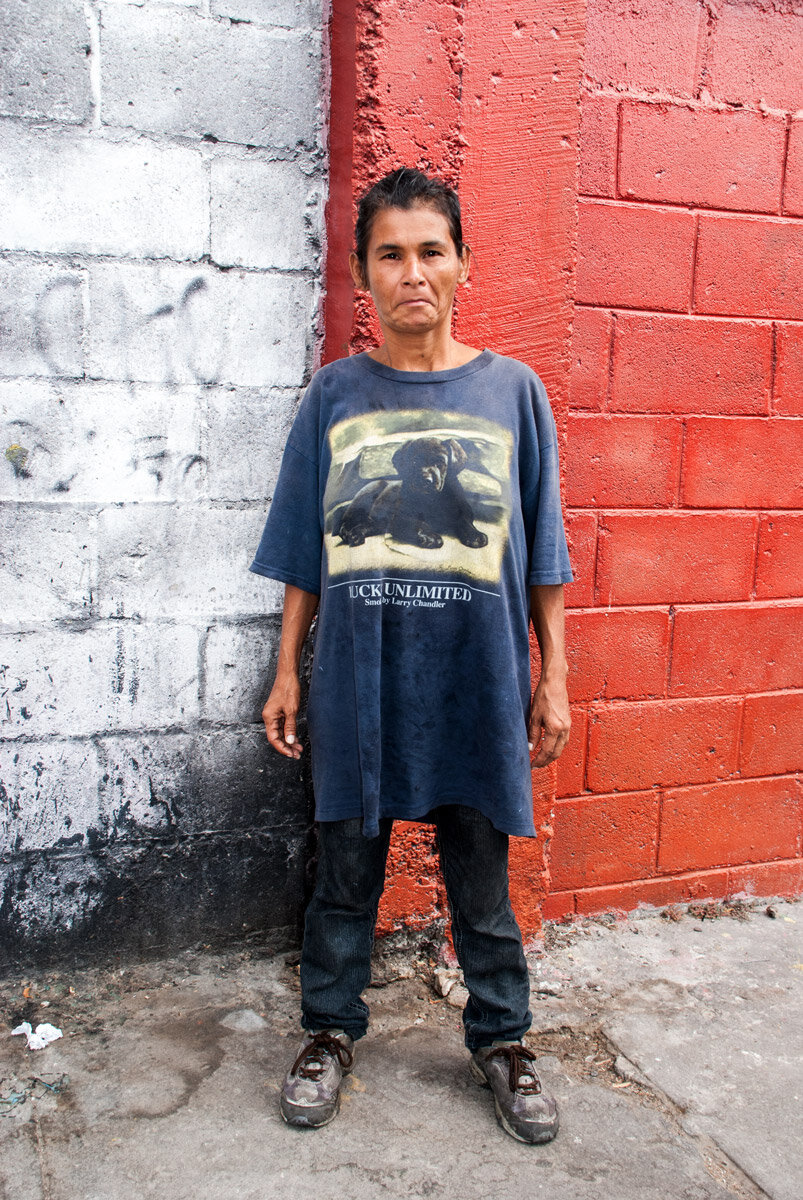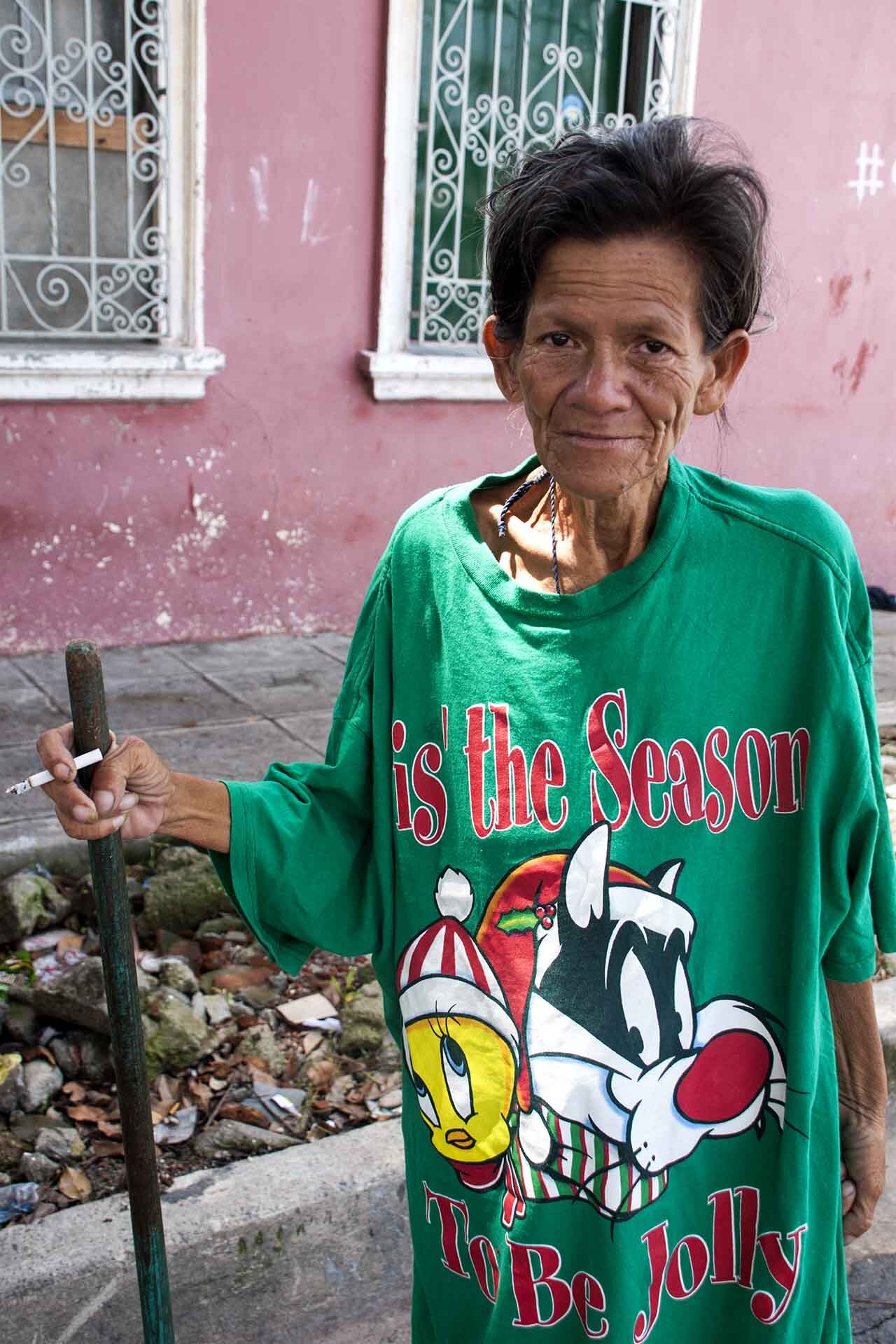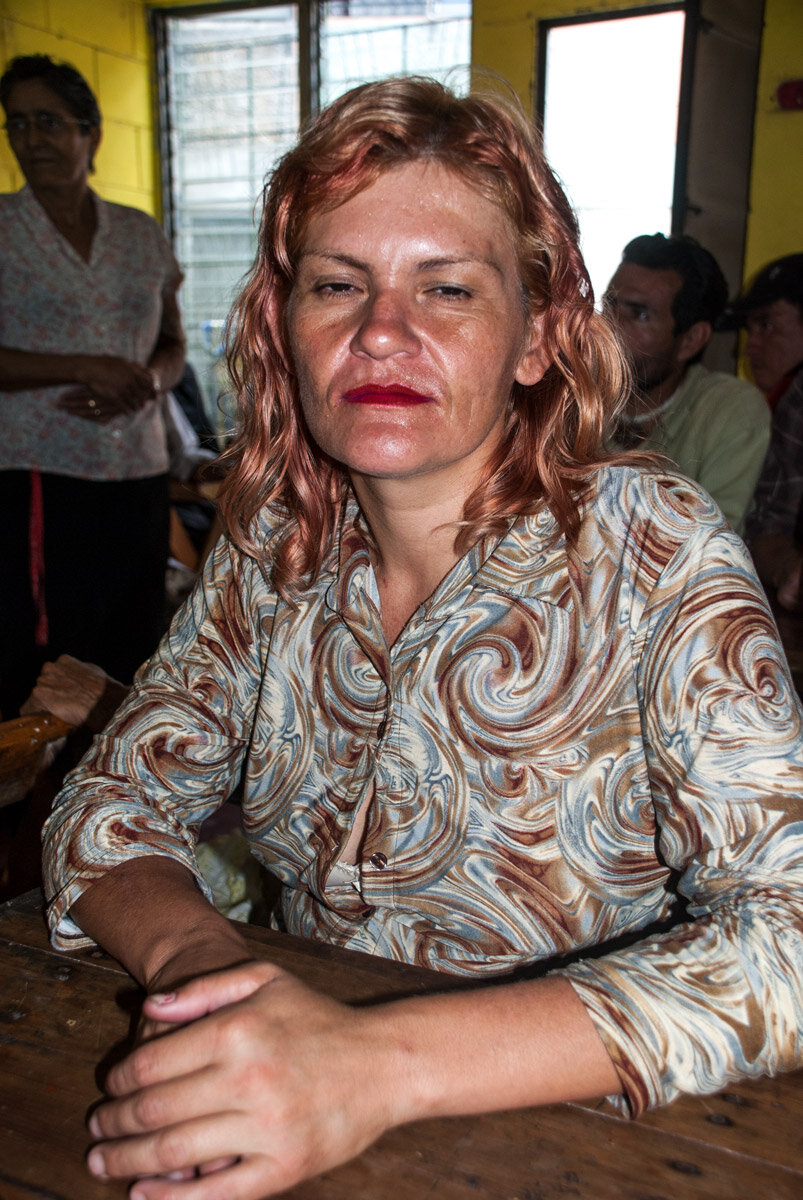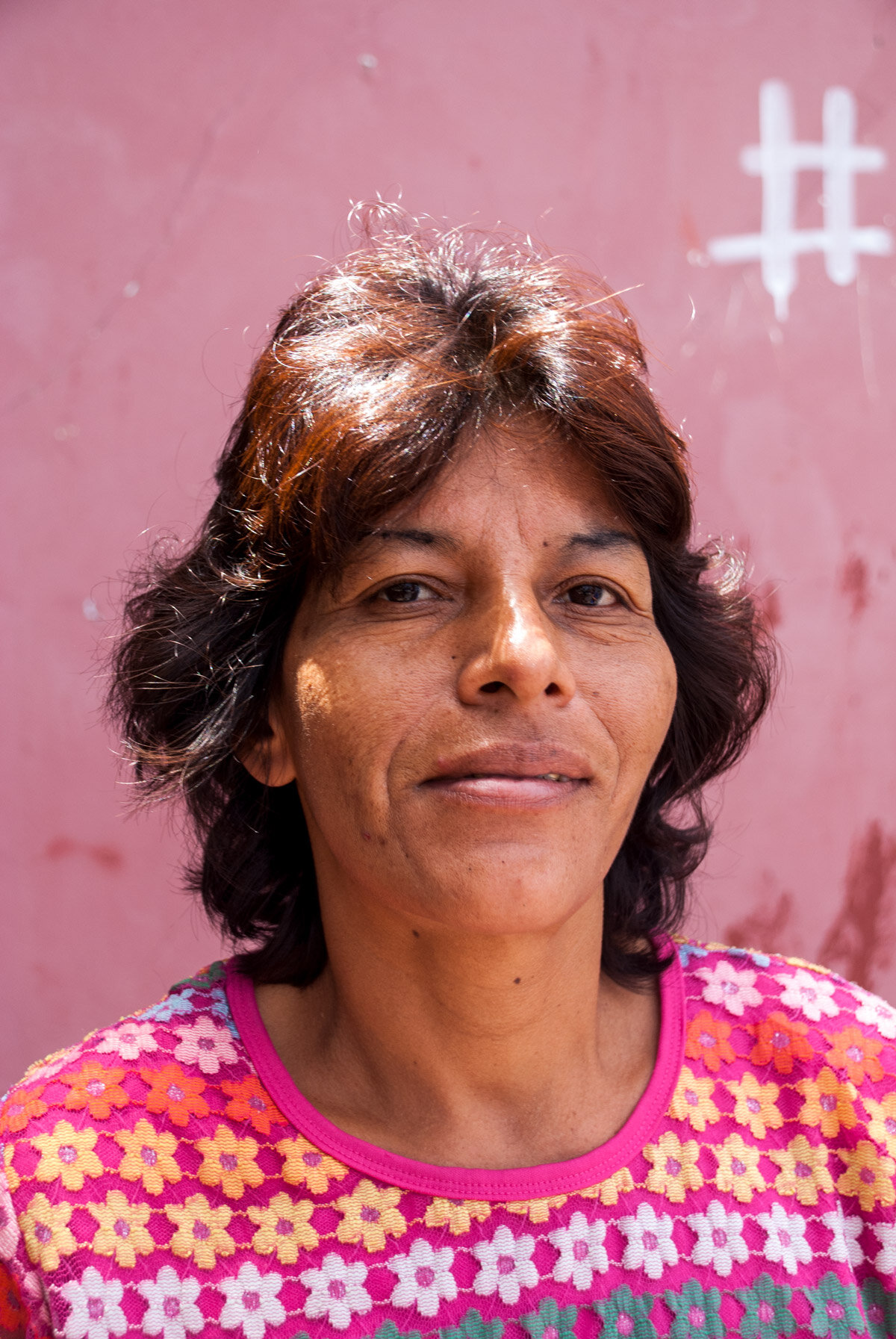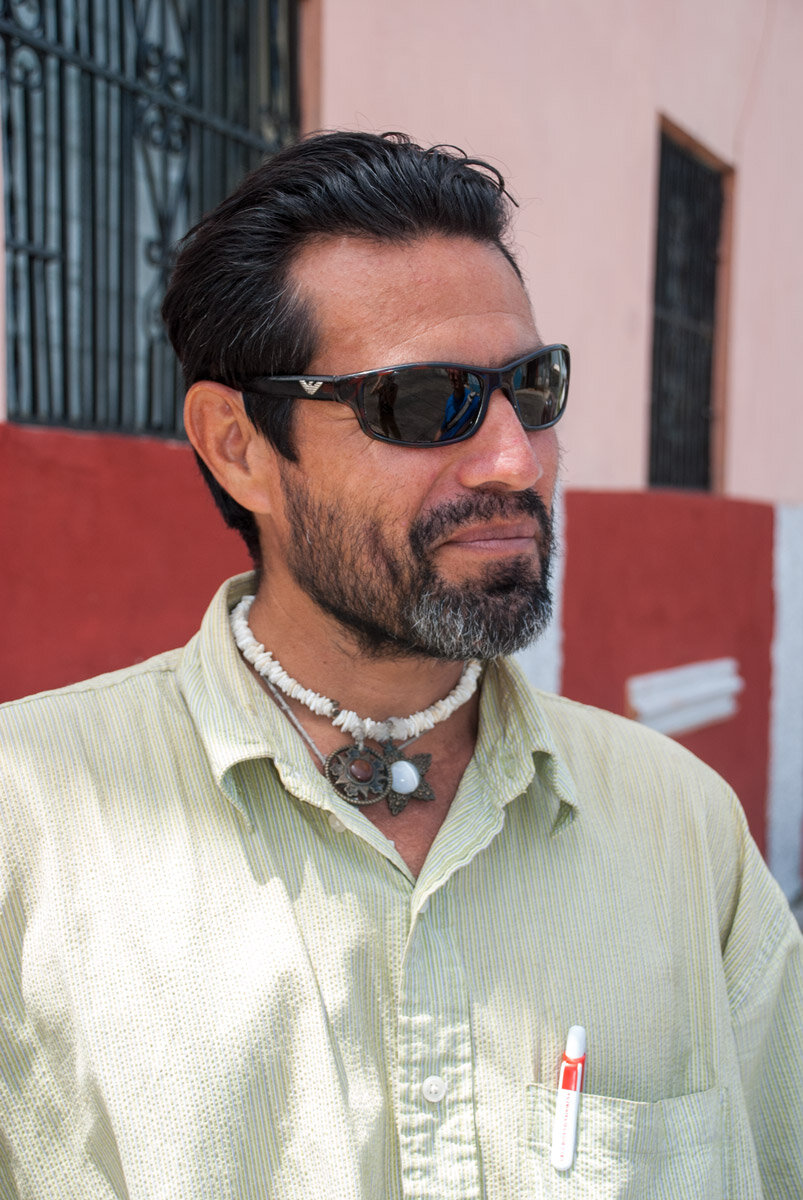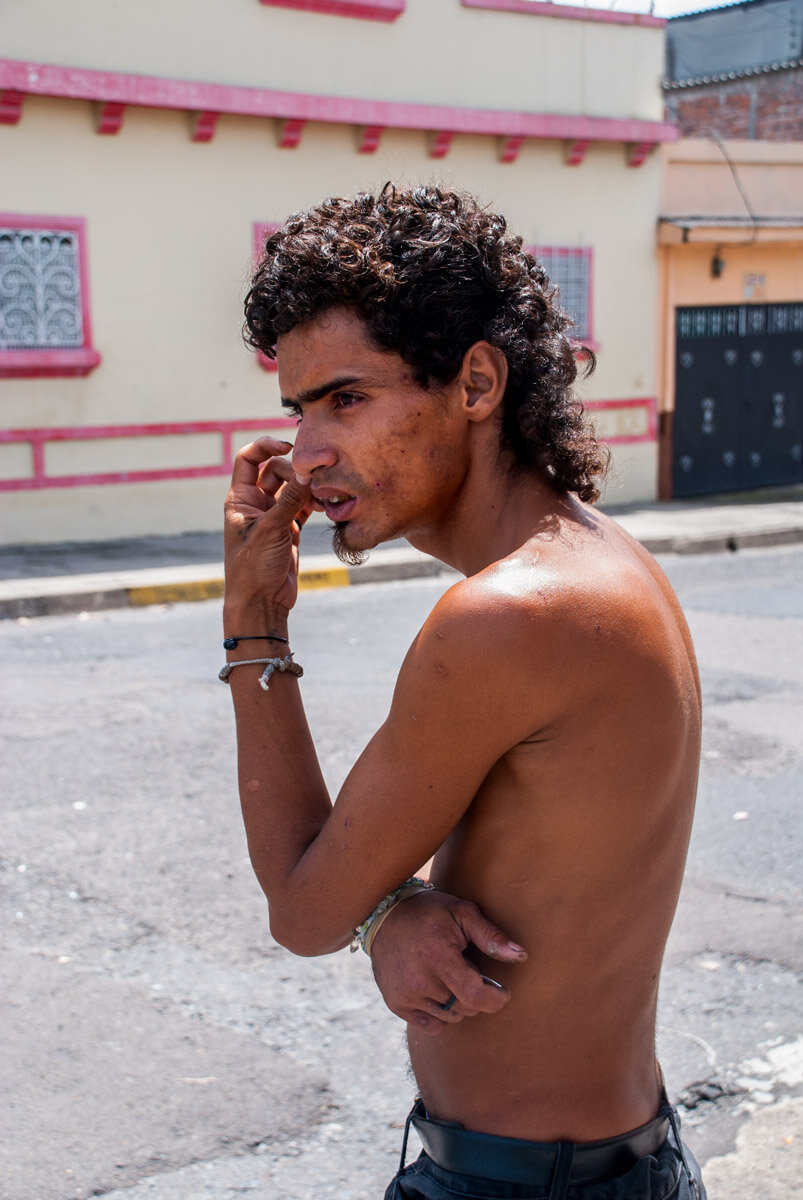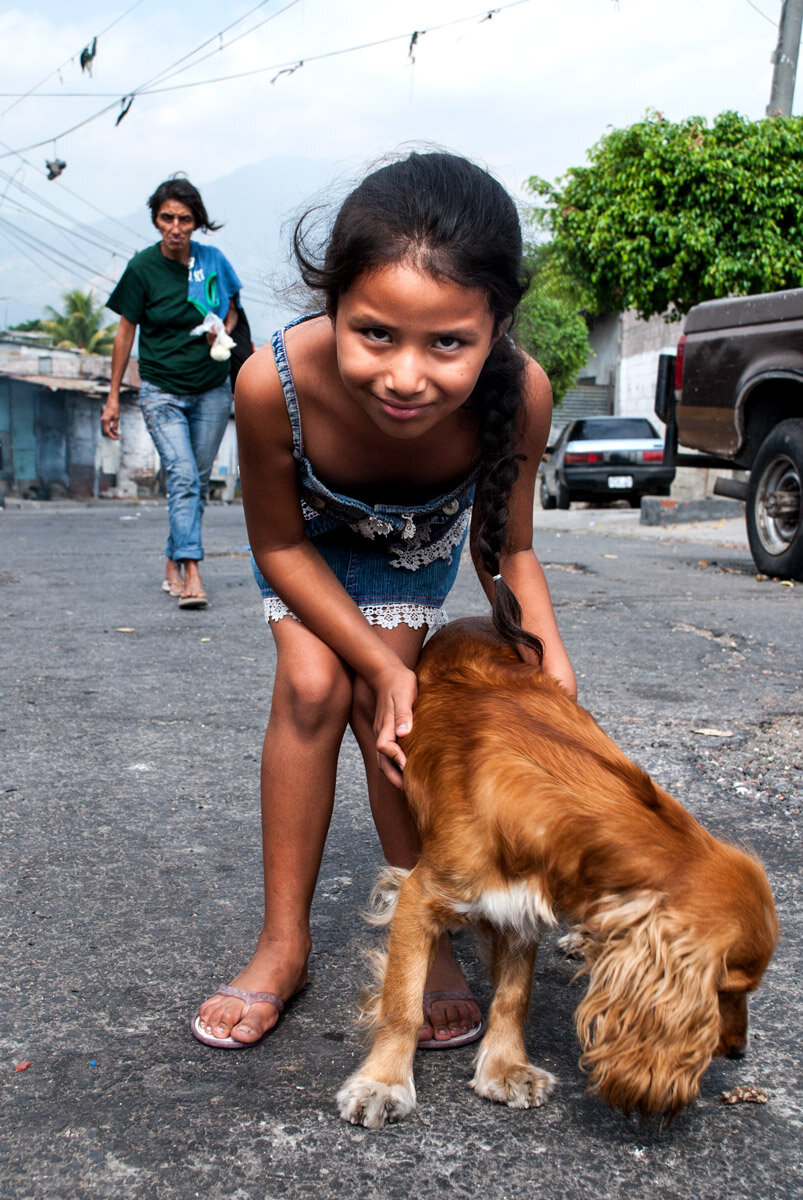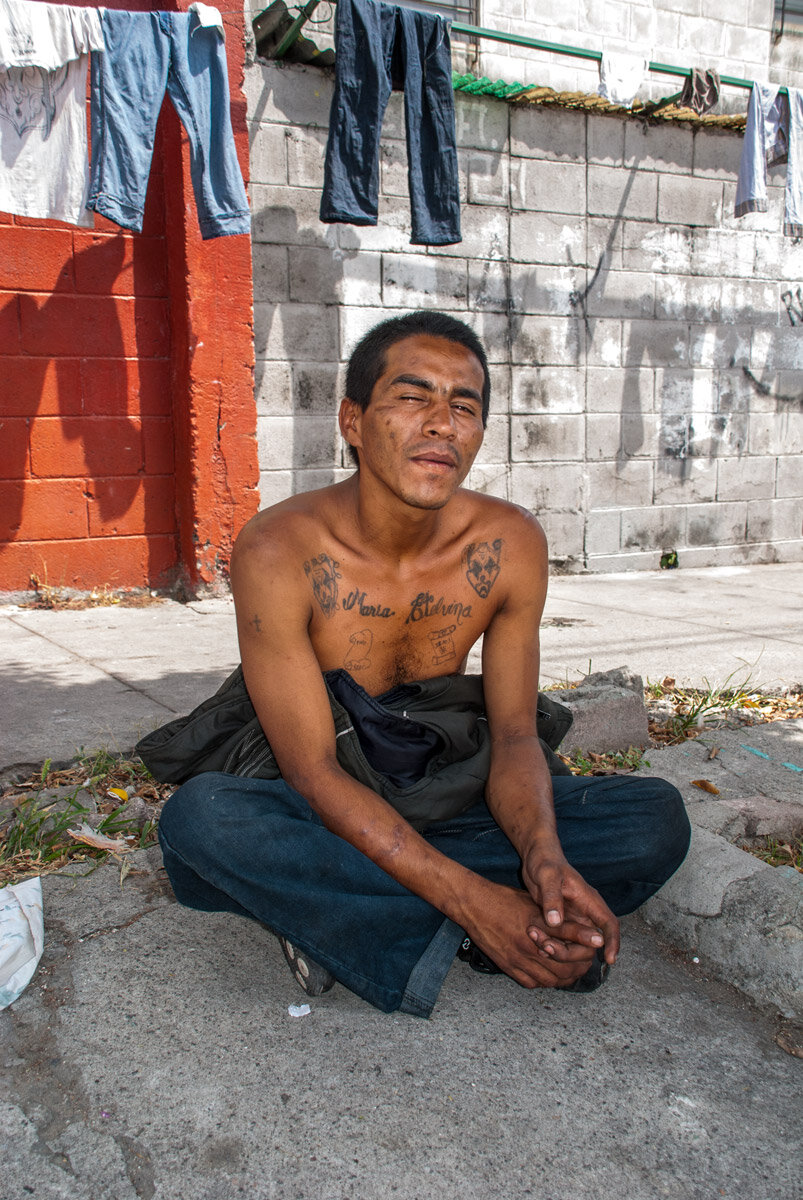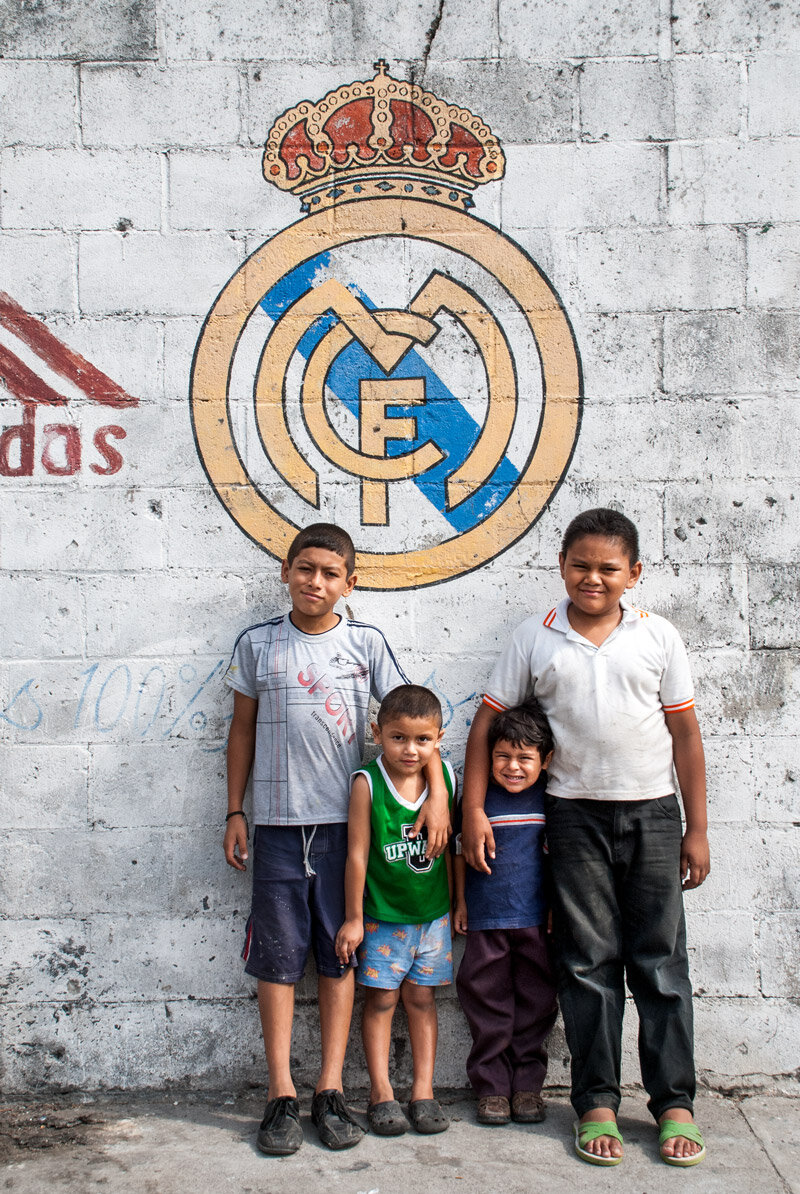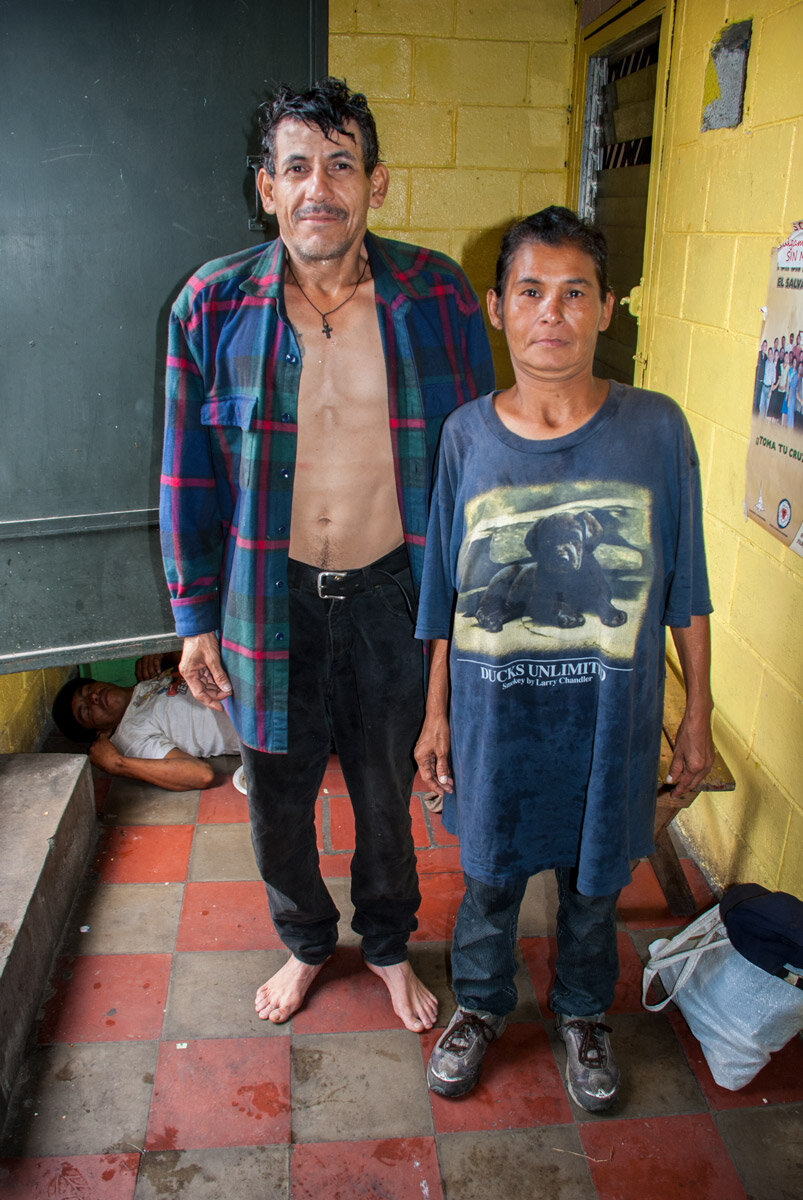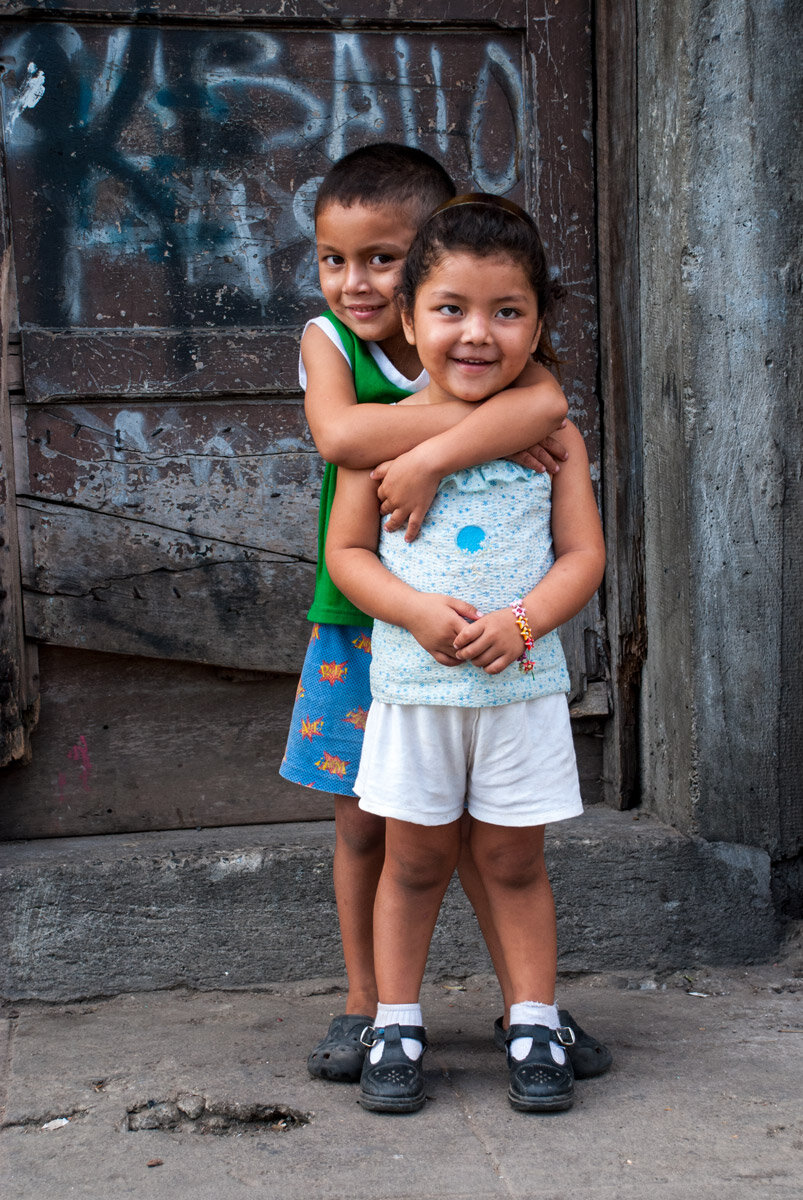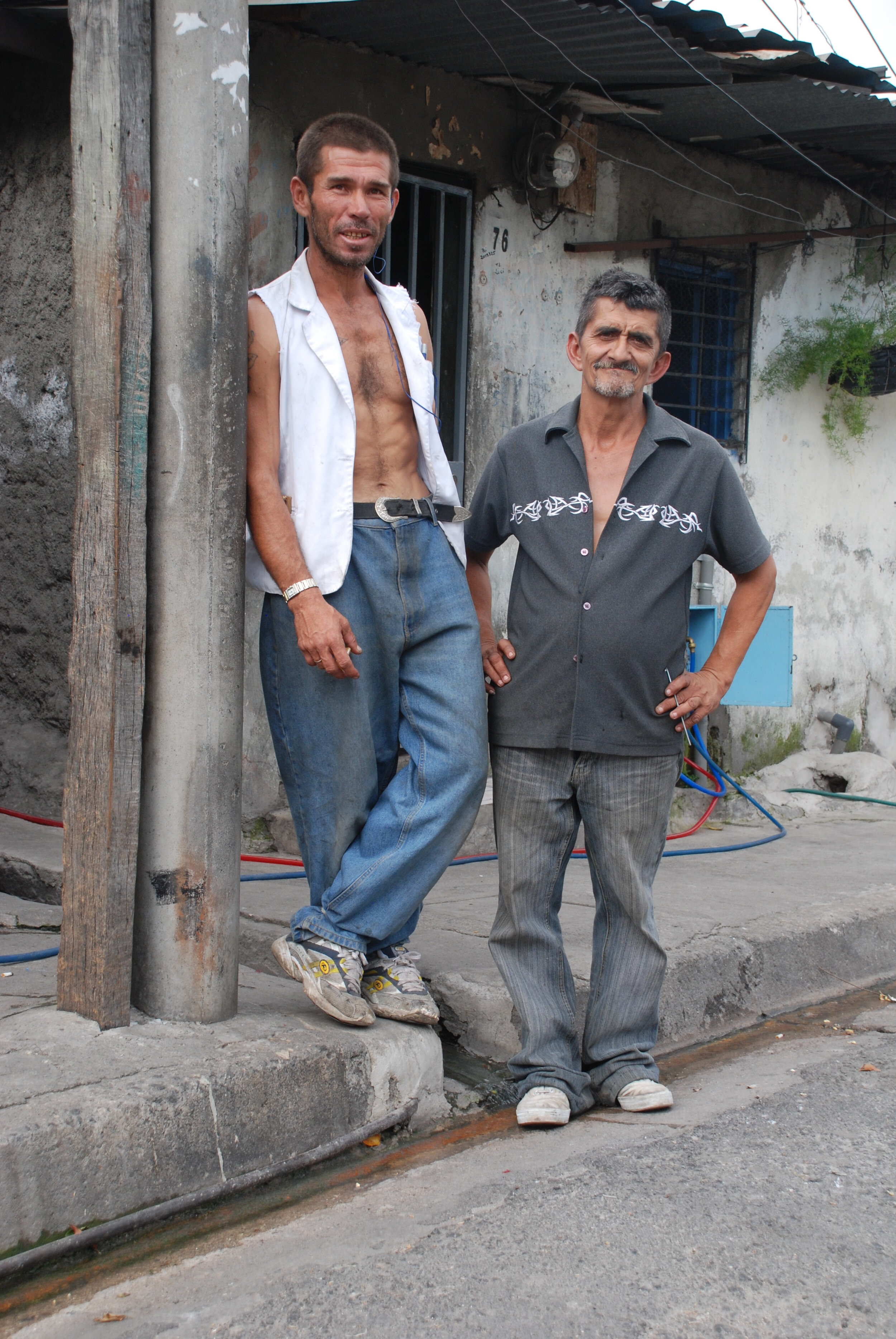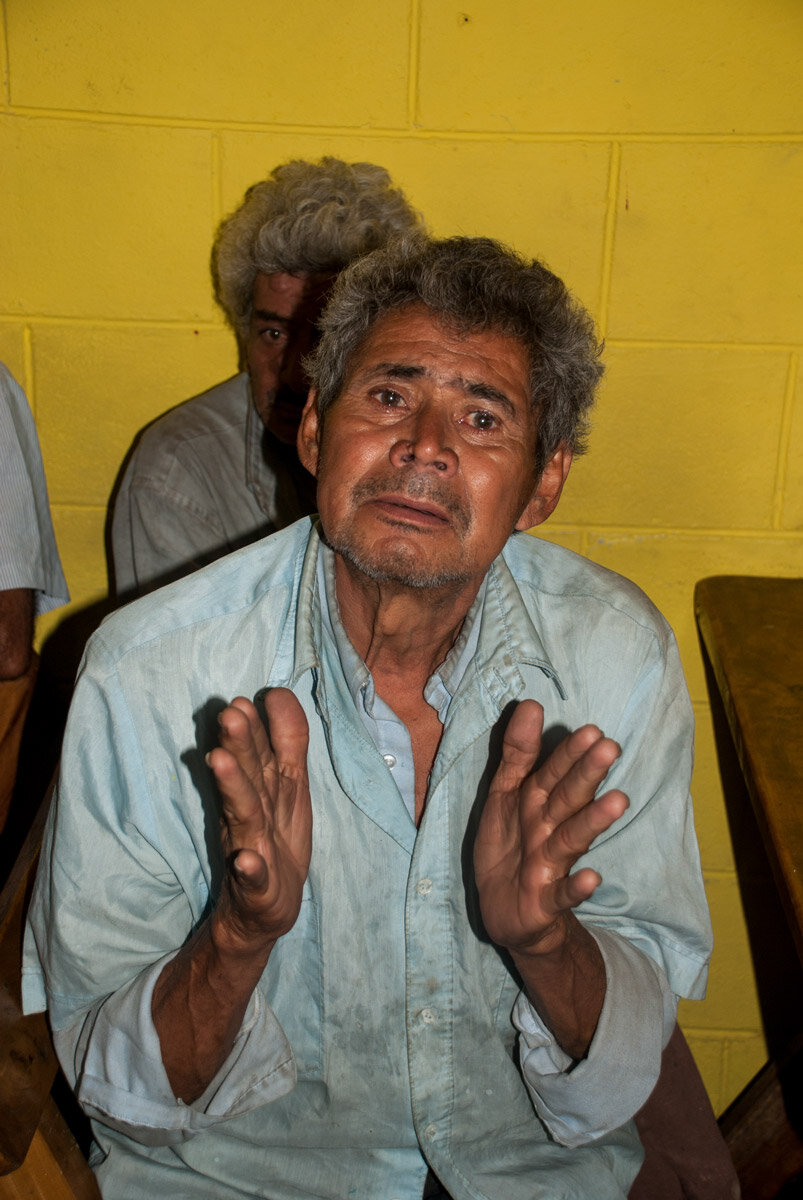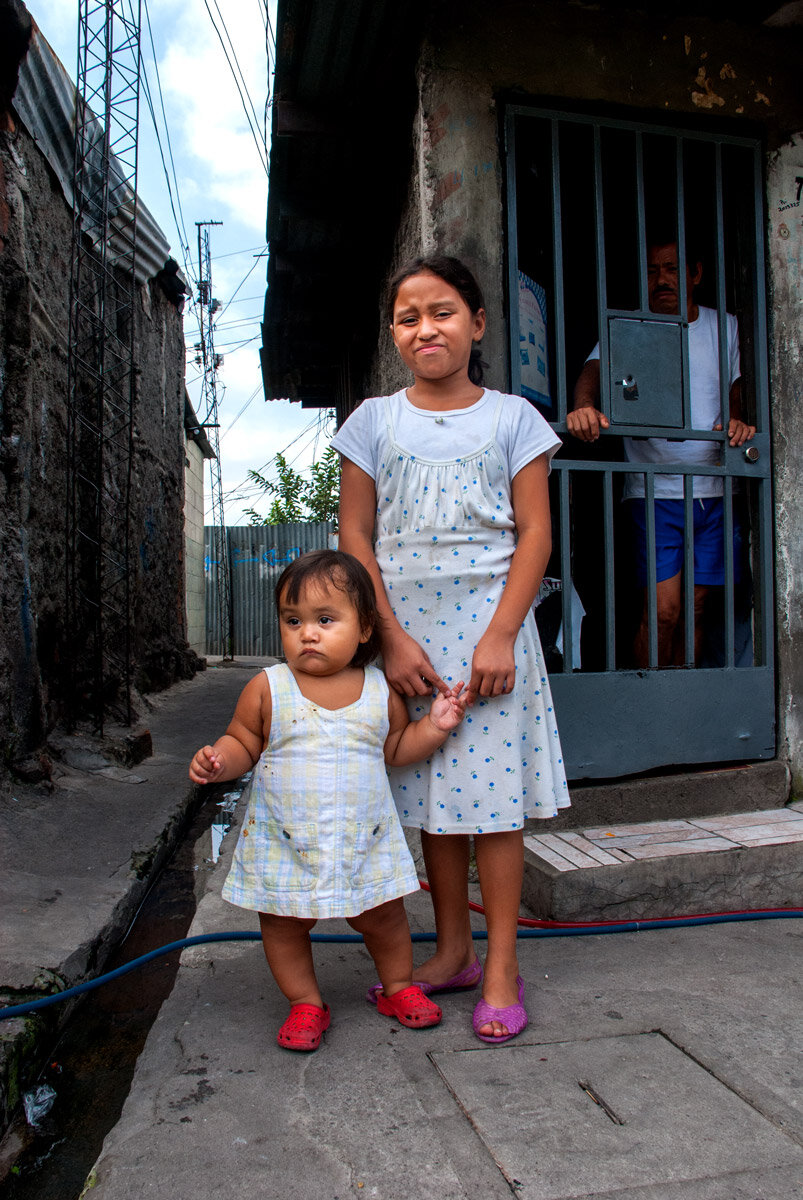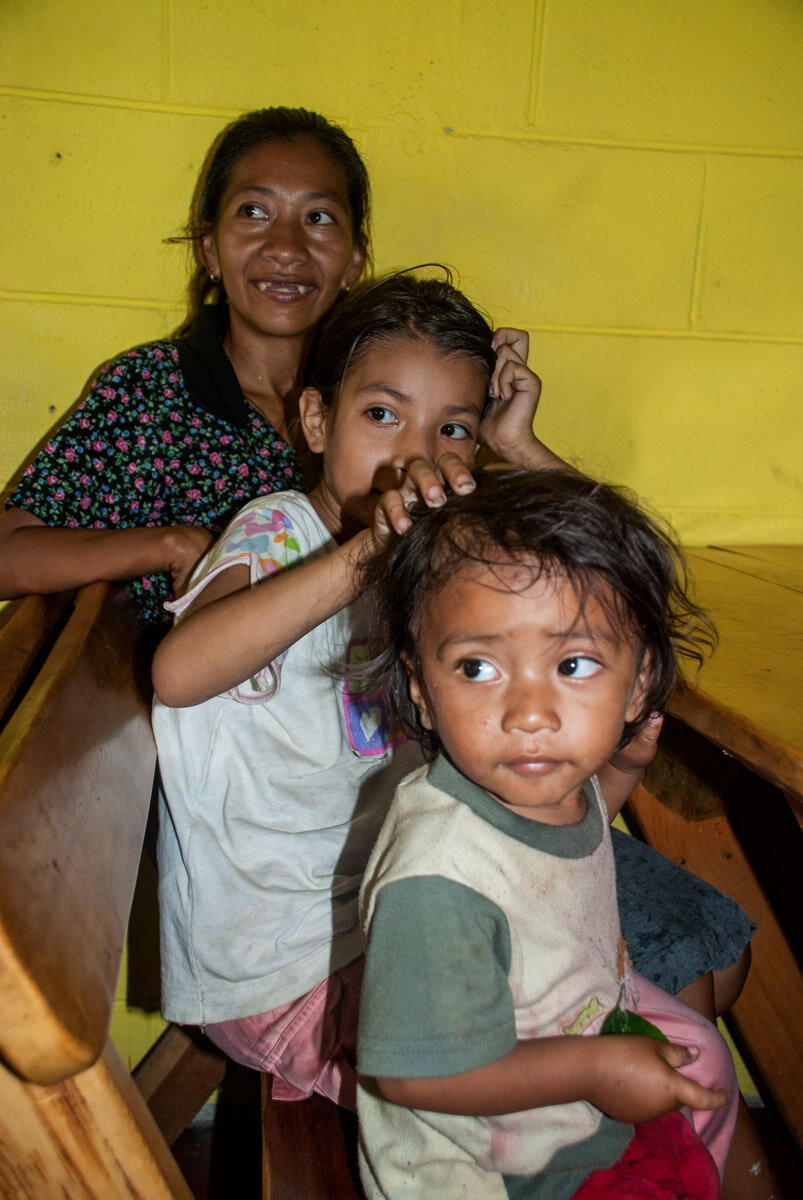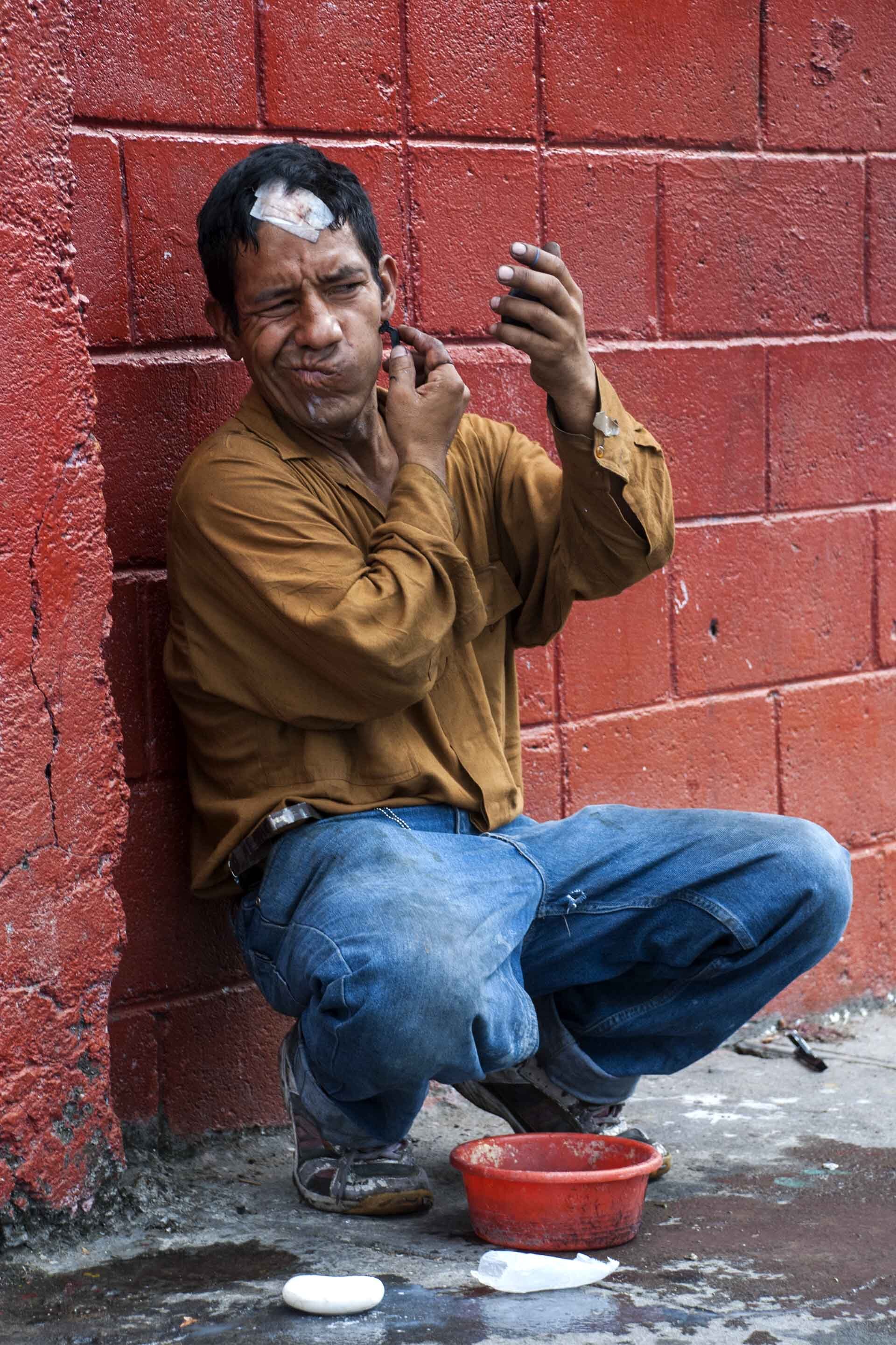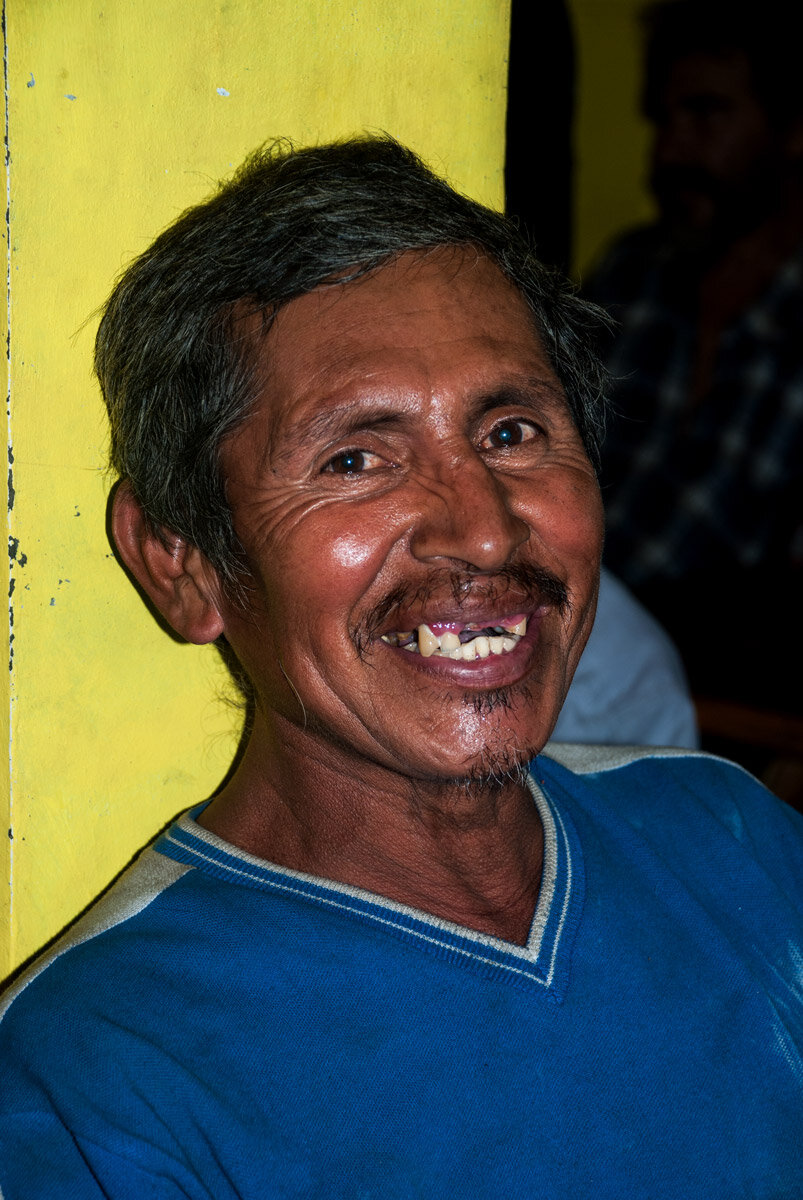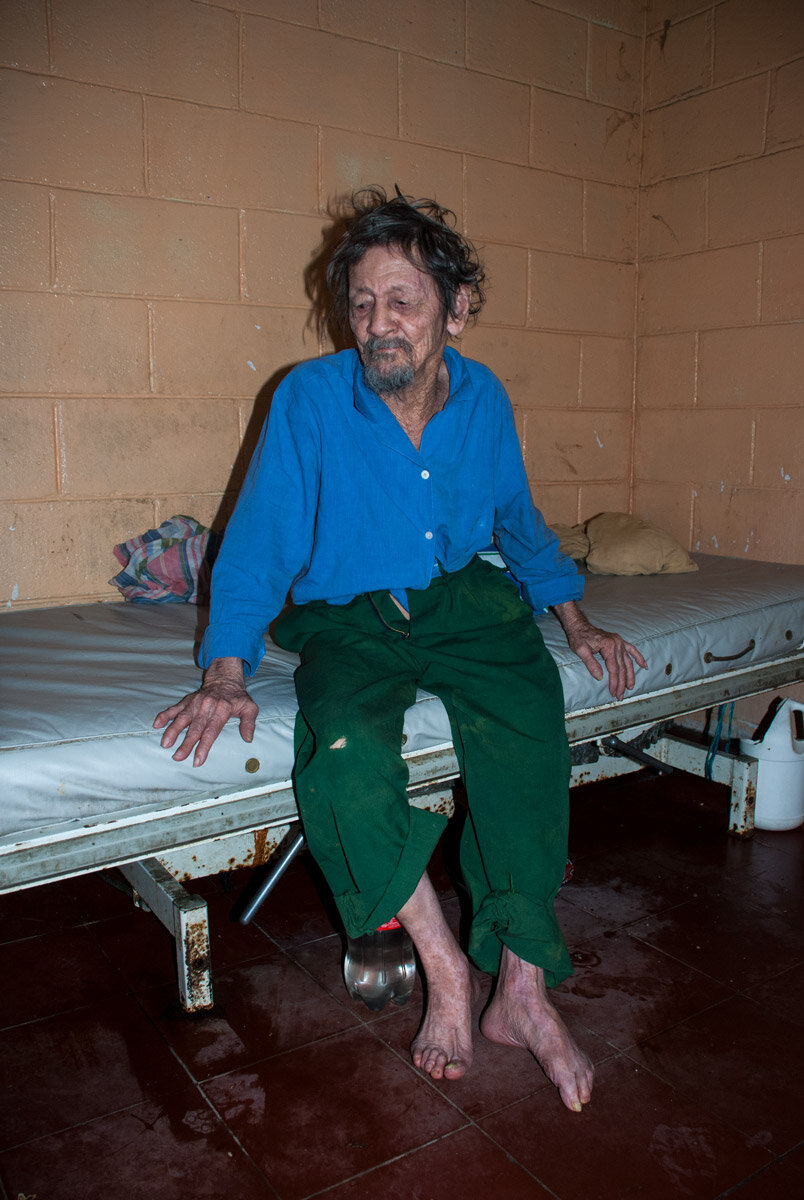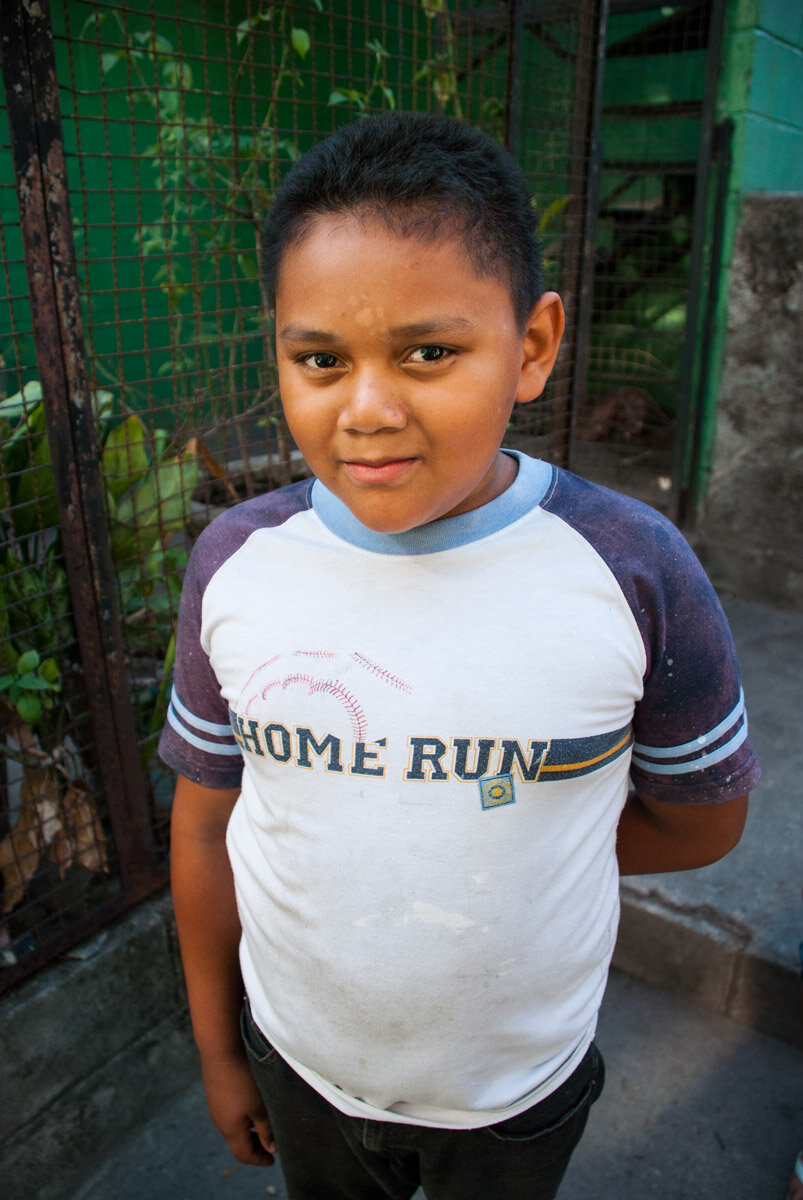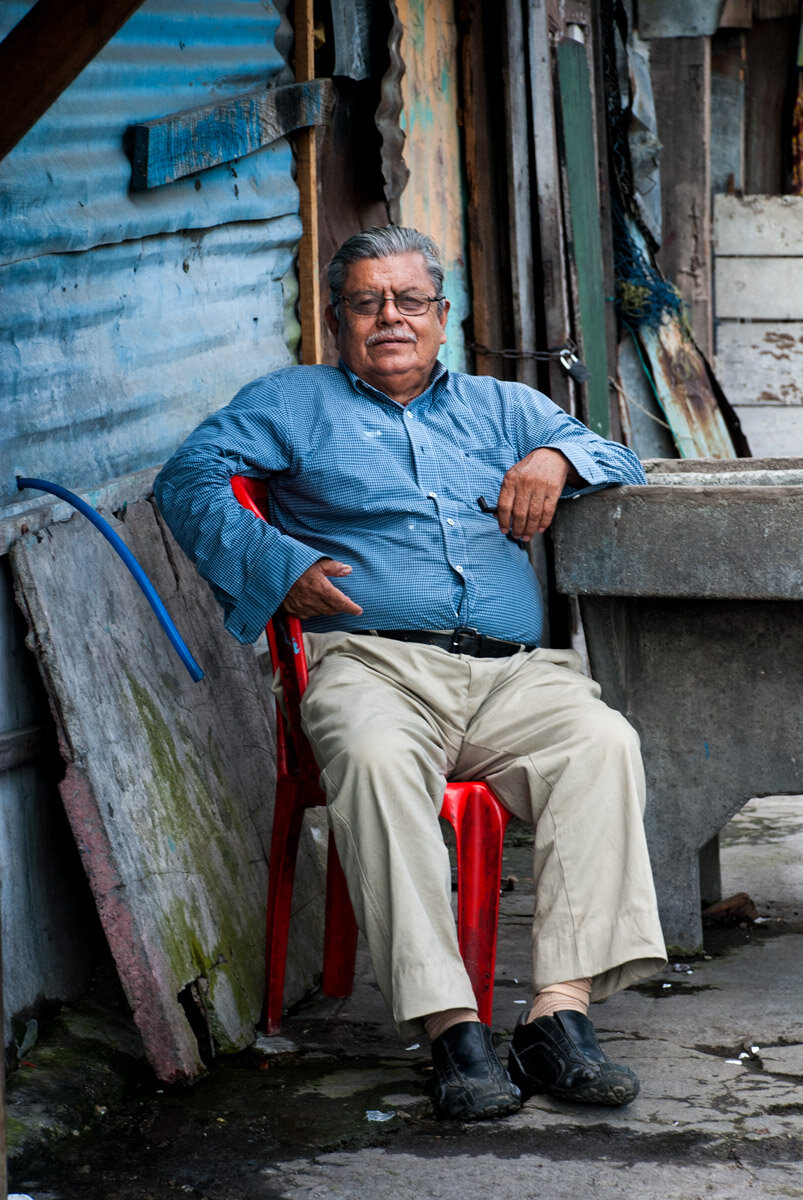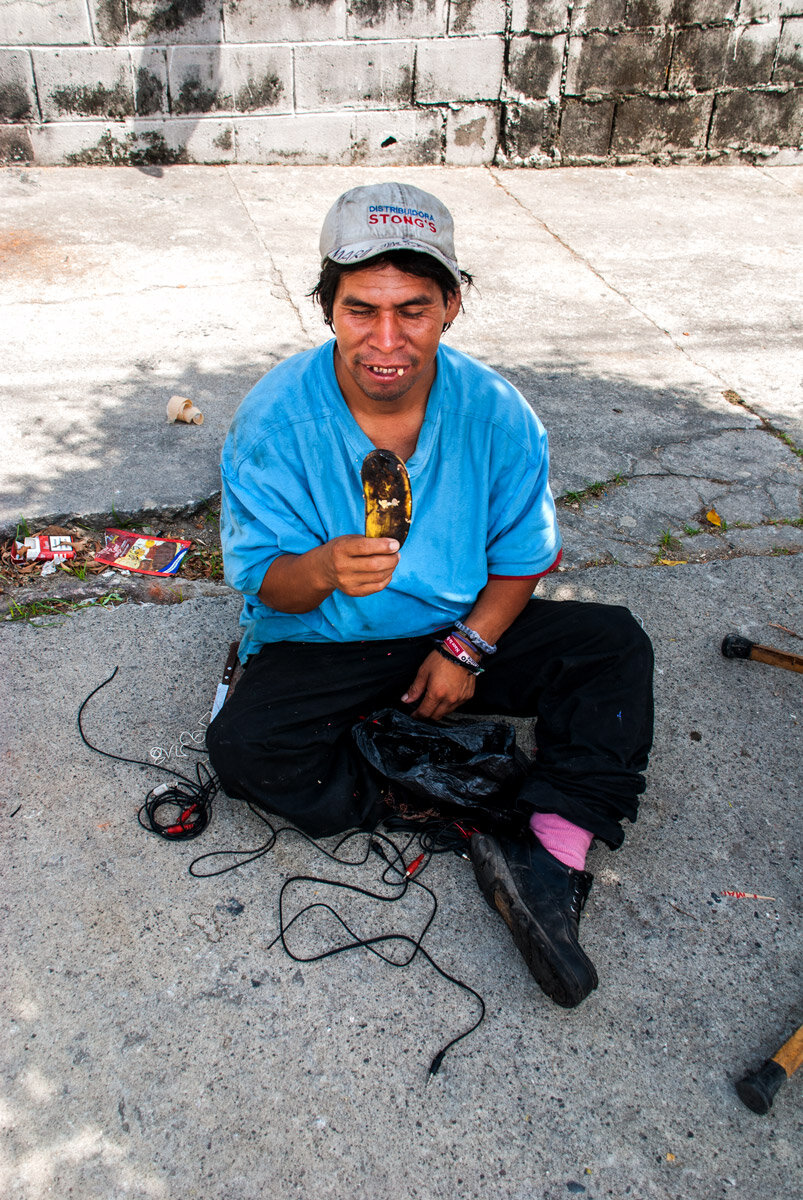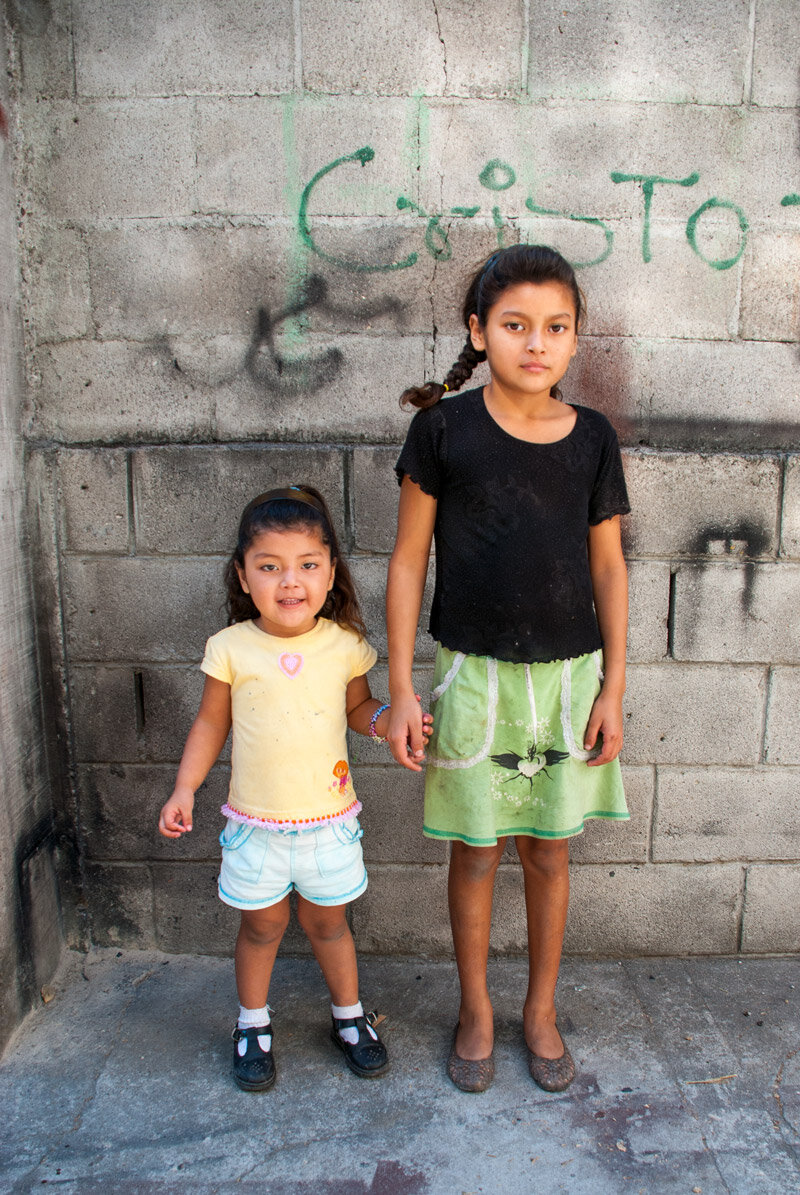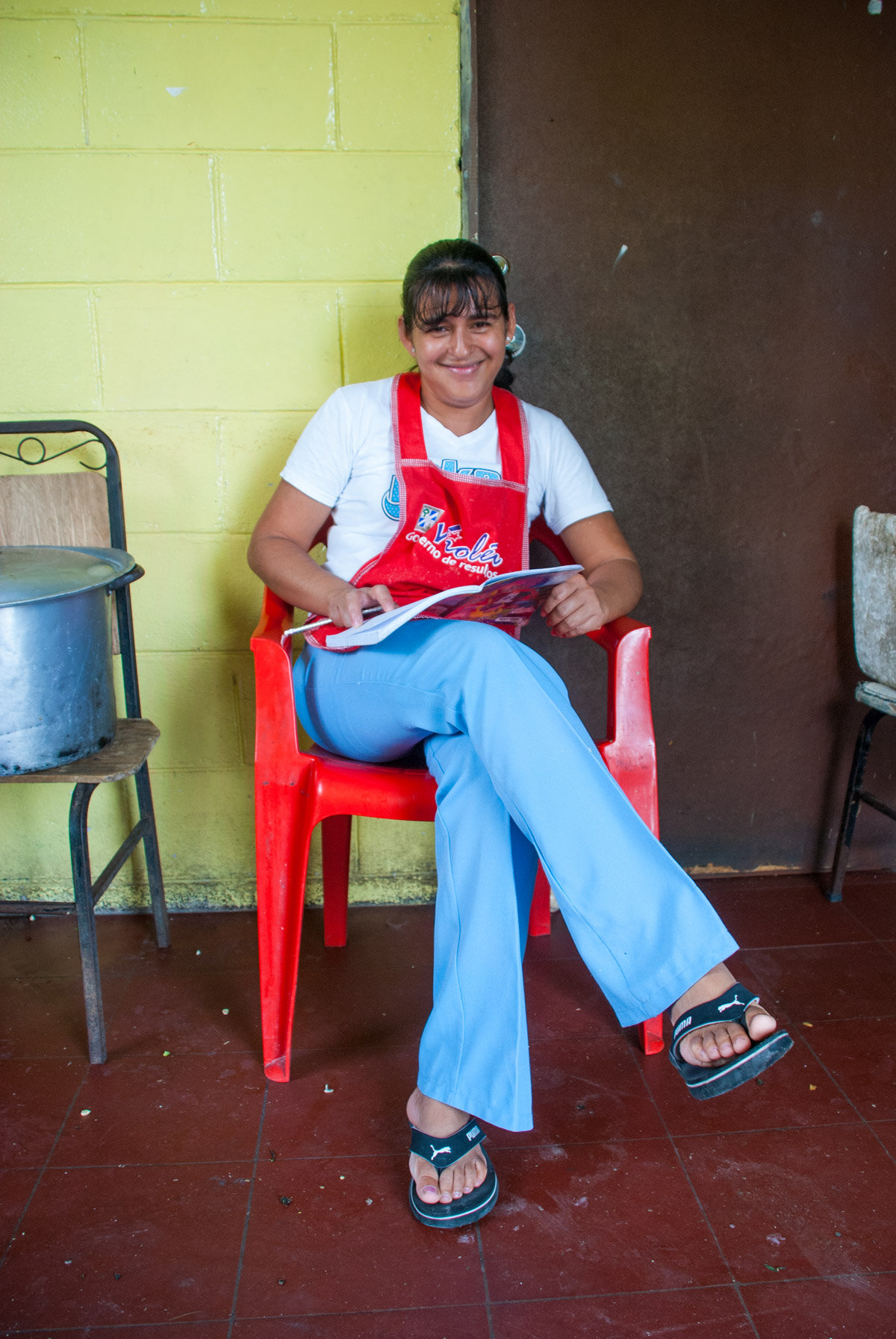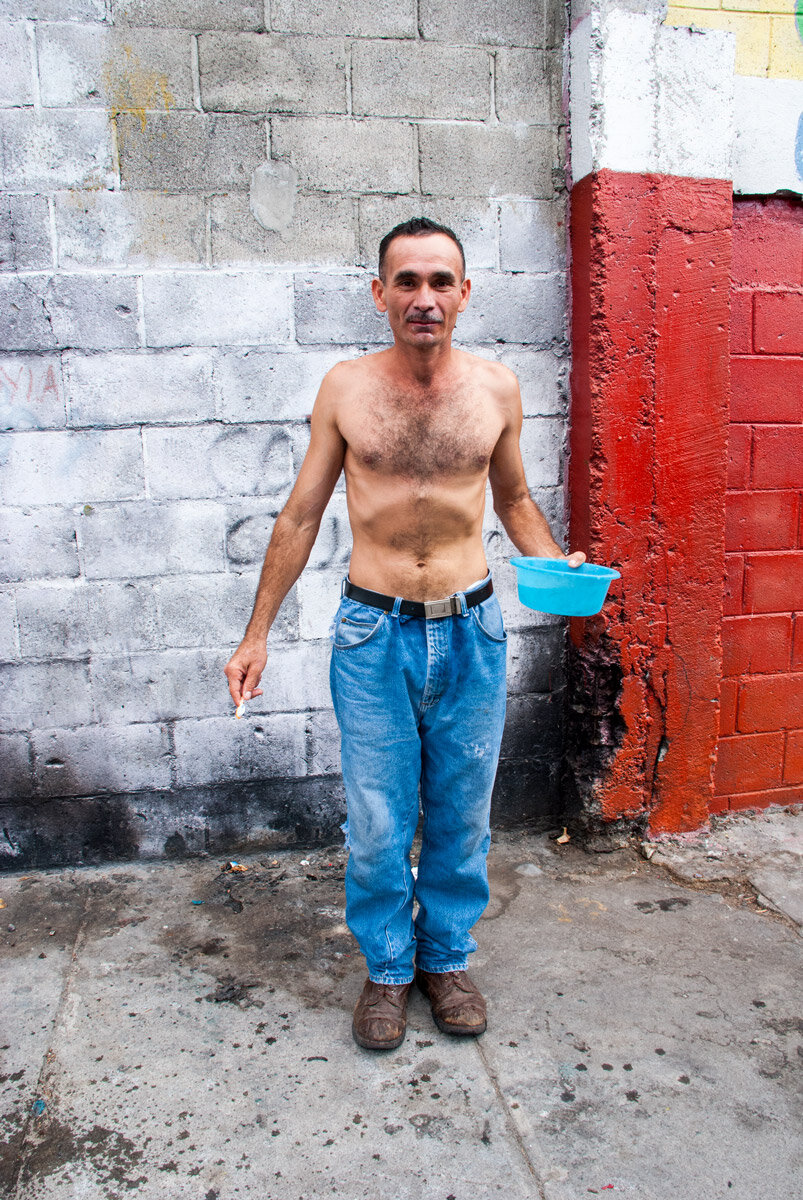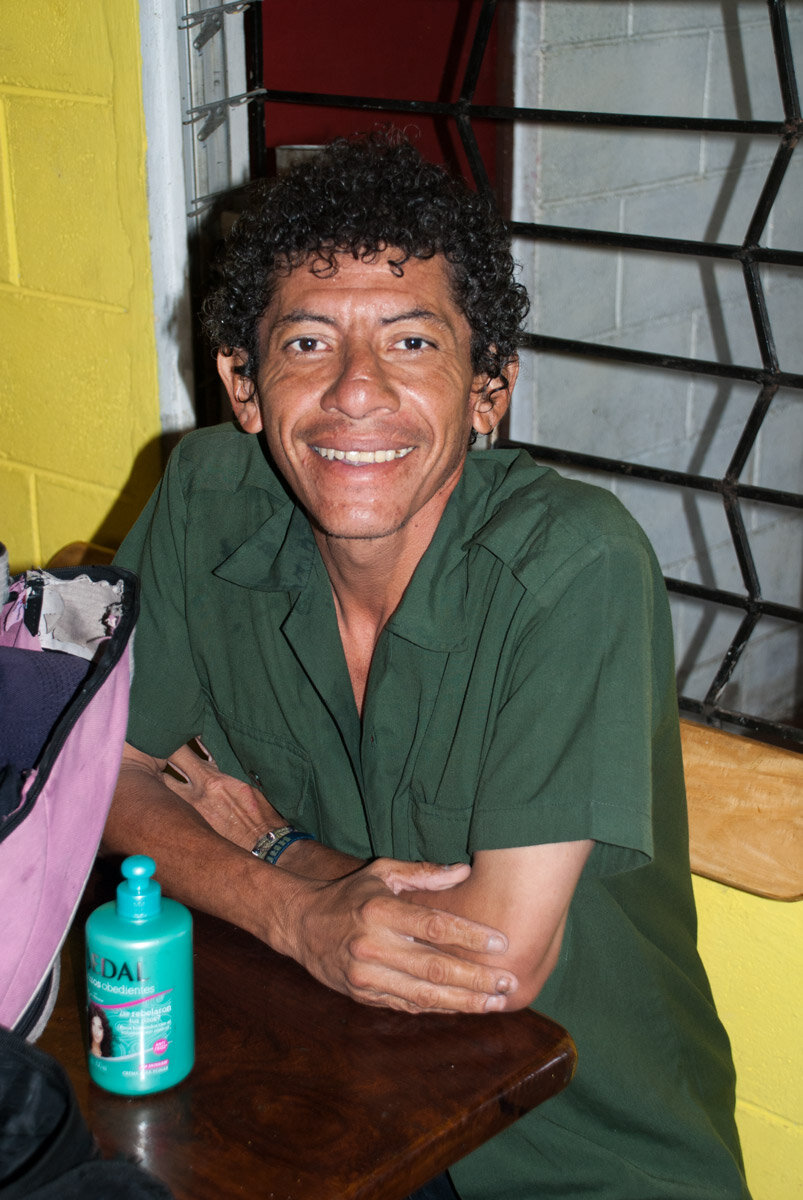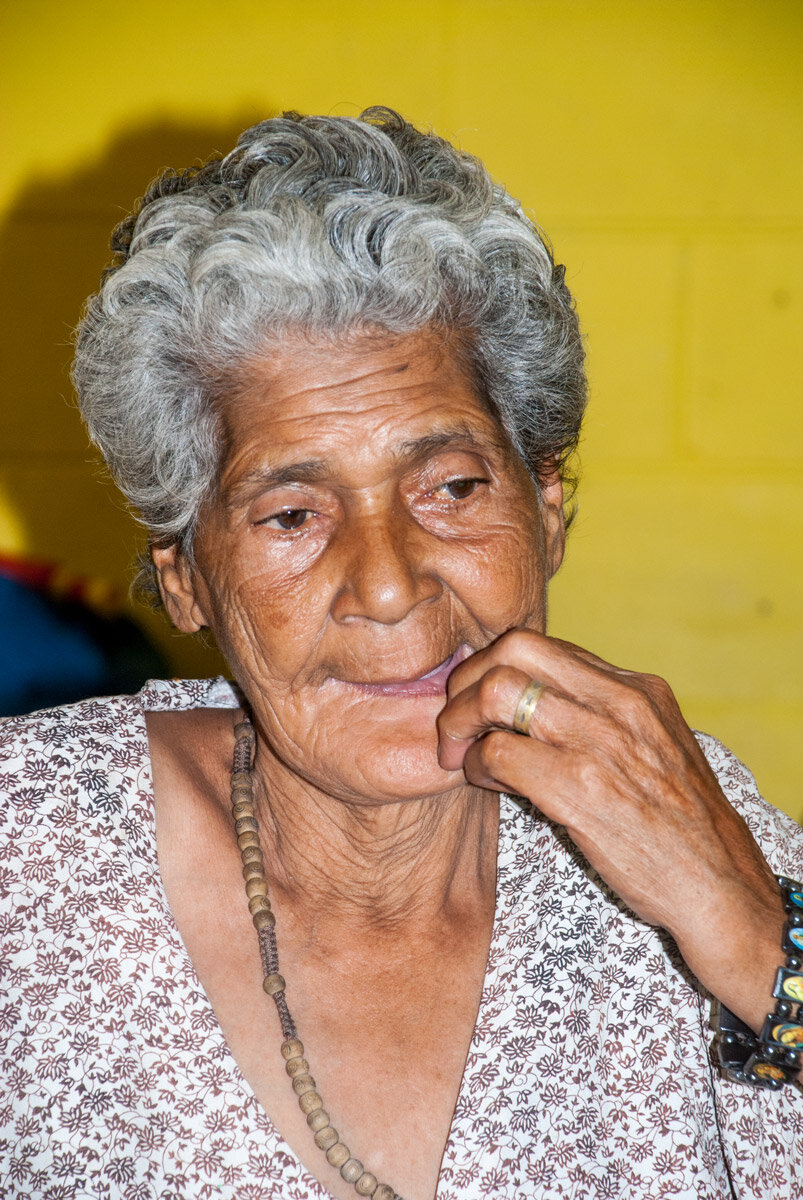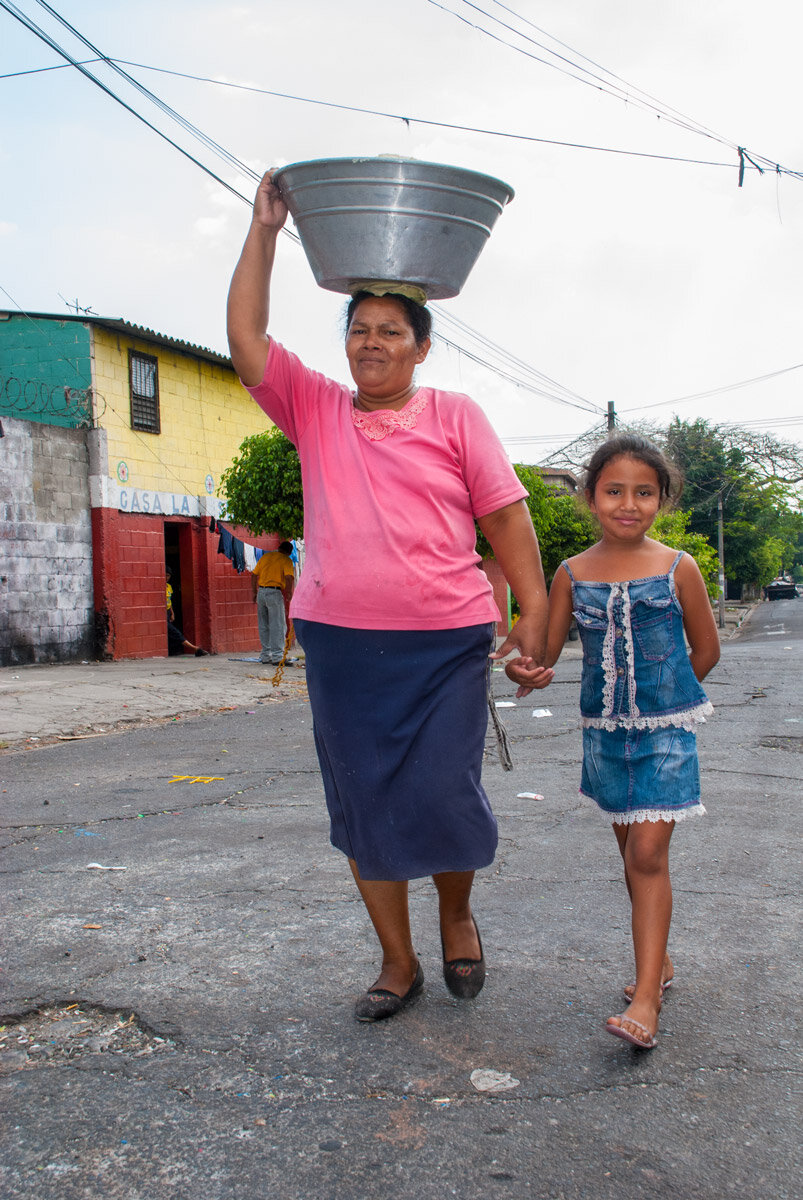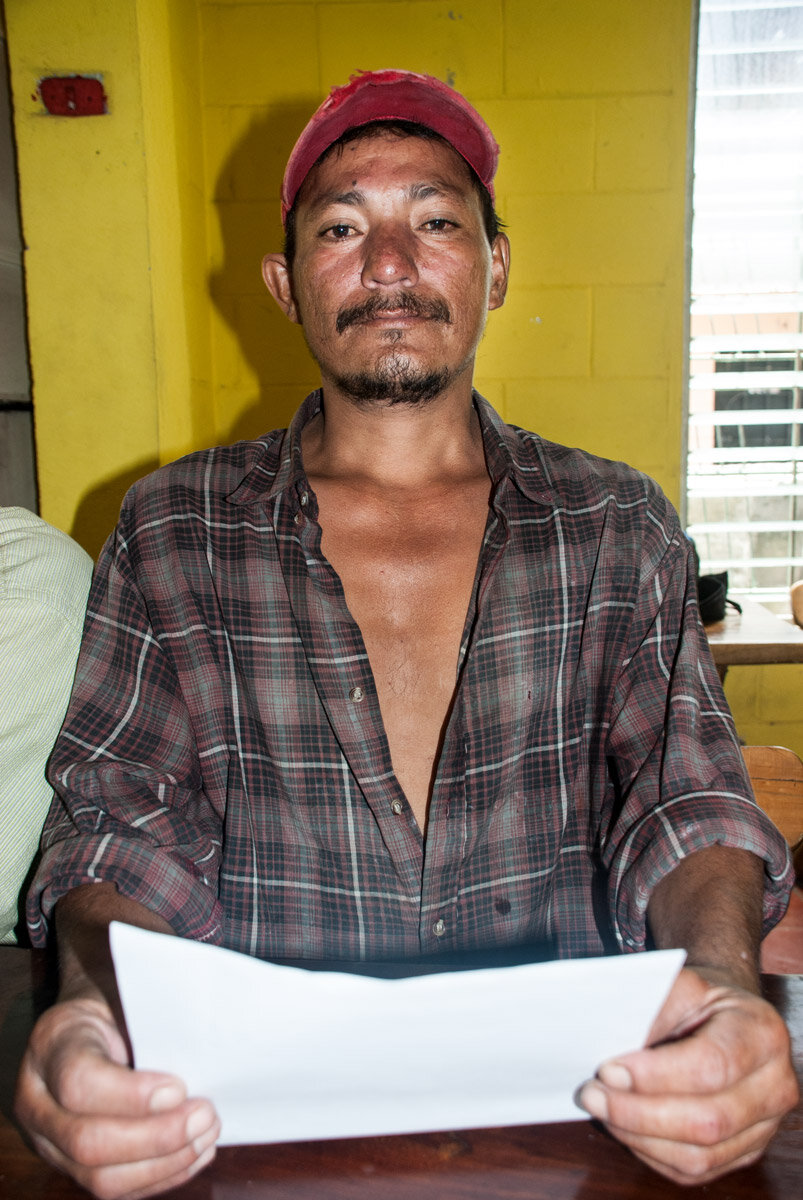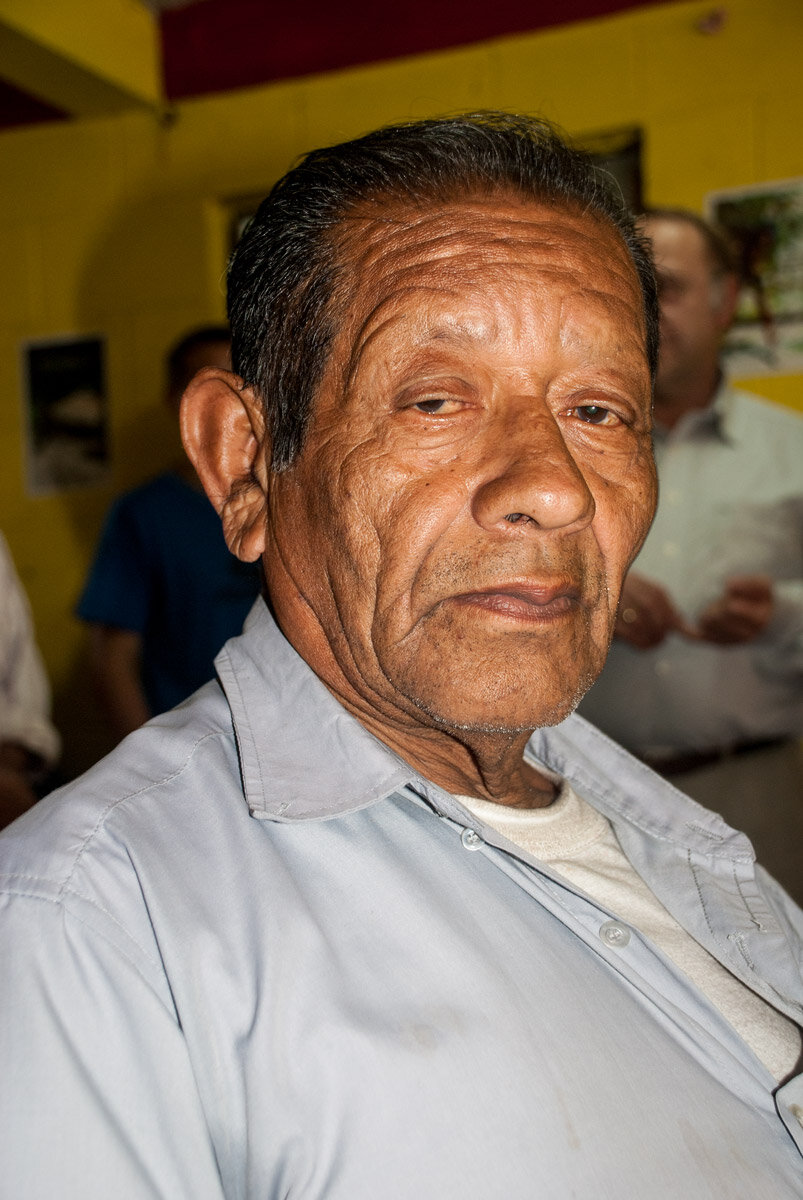FACES OF TUTUNICHAPA
THIS SERIES PORTRAYS PEOPLE FROM TUTUNICHAPA, A GANG AREA CLOSE TO THE CITY CENTER OF SAN SALVADOR IN EL SALVADOR, CENTRAL AMERICA,WHERE FOR ONE YEAR I VOLUNTEERED AS A HOMELESS HELPER.
El Salvador is the smallest and the most densely populated country in Central America. Considered one of the most dangerous countries in the world, many people associate it only with gang violence and crime. Nevertheless, I was lucky to get a broader perspective of this beautiful country and its people.
In 2006/2007 I spent one year volunteering as a homeless helper in San Salvador. I mainly worked in the barrio “Tutunichapa”, an area close to the city center dominated by the “18”, one of the two main gangs in El Salvador. I count my time there to the best of my life, while it forever changed how I see the world.
I lived in different parts of the city, but I always had to take a bus to 'Parque Libertad', a big plaza in the city center of San Salvador, where I would then take the bus number 10 to Tutunichapa. I got many weird looks from the locals, as if I didn’t know where this bus was going. But I knew it very well. Also, the people from the area got used to my exotic red headed appearance. I stopped the bus by whistling through my fingers and hopped out at the street corner Calle Buenos Aires. Every day I was welcomed by the men who were sitting in front of their houses, sometimes with their pump guns. They usually waved at me with a big smile on their face, and wished me a ‘Muy buenos dias princesa! ’.
The closer I got to the shelter, the more people smiled at me and welcomed me. Sometimes I even got a hug accompanied with stories about what had happened last night in the hood. One day I remember I saw Rosa sitting on the ground. She came very often to us. This morning she seemed very drunk and wasted. But when she saw me she said with a very biiig smile on her face: "Buenos dias Hannita, mi amor!". I smiled back and asked if I should help her carry some stuff as she was indicating that she wants to come with me. I ended up carrying her home in a bag on one shoulder, while she was hanging on the other. She was so drunk she could barely walk - and I was having a hard time too. I’m sure that where I grew up, people would have turned away pretending not to see us. But in this neighbourhood it was different. People around us cracked up laughing and wished us a good day but primarily good luck! We must have looked hilarious and I must still laugh when I remember that story!
The people who came to the shelter ranged from alcoholics, drug addicts and dealers, to prostitutes who were mentally ill, were HIV positive or had other diseases. Some were young and some were old. But most importantly, they were people like you and I, who despite their sometimes tragic destinies, still knew how to smile and make a joke. The shelter was open from Monday to Thursday. People could take a shower, wash their clothes, they would get a meal per day and they could relax, close their eyes, nap and forget about their harsh realities.
I remember my first day in the homeless shelter and I honestly tell you that I did not have the slightest clue how I would handle the people, the surrounding and that smell. I almost couldn’t breath that day. Luckily I managed to dive into this new world very quickly and with delight, but I won’t forget how difficult the beginnings of this adventure could be sometimes.
When I arrived in El Salvador, all I could say in spanish was ‘Hello my name is Hanna and I have a big brother‘. From first world problems to real life, that’s how it felt. It was very tough. I had thought I knew so much about this world, and all of a sudden I had to confront myself with the fact that the reality I grew up in was the reality of some minor part of the world population who tends to take itself very seriously. I knew soooo little, and nothing worked as I was used to. I had to reinvent myself from scratch. The system ‘Hanna‘, that consisted of an intellectual mind that would express itself mainly through language, didn’t function in this environment any more. I was reduced to my physical body, and I found myself reflecting on Decartes’ ‘I think, therefore I am‘. He was right, our intellect does make us who we are - but what are all our thoughts worth if we can’t exchange them with anyone? Welcome to beyond the comfort zone! I had arrived at my desired destination!
Some of the people who came to the shelter didn’t talk much, while others appreciated having someone to talk to and share their stories. There was a 15 year old girl, Cristina, who told me how she was hiding from the gangs as they were trying to kill her. There was the one legged Martin who loved talking to me, but I could never understand a word he said because he mumbled so much. And there was Miguel...or James, or... I can't really tell you his name, because he changed it every day. He liked me, and often happily shared his completely twisted realities. One day he was the president of the FBI and fought with the devil. While on another day he flew over the ocean with his plane in order to put salt in it, so that it would be always salty when I would go for a swim. Like many others he always carried a big smile on his face and it was hard to not laugh with him. I was very sad when I heard that he was run over by a bus shortly after I left. Unfortunately it wasn’t the only time I was confronted with death during that year. There were murders, accidents and diseases that took people away from one moment to the other.
Coming from one of the safest countries in the world, this of course was quite shocking and not easy for me to deal with. Especially when these stories never seemed to come to an end. But the good mood and humor around me helped. No matter how poor or how difficult peoples’ lives were, or how cruel the tortures were that they went through during the civil war, no matter how many deaths they had to deal with - they always had a smile to share. Yes they also cried, but mainly they smiled.
This year was quite a ride. Leaving my comfort zone surely wasn’t easy, but it was undoubtedly the best thing I could have done. The tiny run-down shitty street that I didn’t know how to deal with when I first arrived, became a place that felt like home. I’ve learned so much about life, death and myself there. People would often tell me: "Hannita, you come from so far away to our little country. You smile at us, you laugh with us, you share your time with us and even sit on the ground with us. You could be home in paradise, but you chose to be here and make us feel like humans."
One of the things that I was not aware of before this journey, was that just by sharing my presence and time with these people, and listening to their stories, I could have an incredibly positive impact on their lives. They always thanked me for being there, and always underlined how much it meant to them that I was there. An elderly man who tended not to speak much told me on my last day with tears in his eyes that he was so sad because his wife died. It wasn’t the fact though that she was dead, but that she passed away three months before I arrived. He said he wished so much she would have met me, that surely she would have died happier. It gave me meaning in a way that I didn’t know of before. The appreciation I felt really touched me, and often I ask myself how the world would look like if every one of us would take a year to dedicate to people who weren’t as fortunate to be born into wealthy homes.
Coming back to my first world home was very hard. I wasn’t the same anymore, and seeing the society I grew up in from my new perspective felt more wrong than before.
The ongoing and never-ending political discussions on taxations of managerial salaries, people being bothered by the bus not being perfectly on time or the queue in the supermarket being too long. And why was everyone so grumpy and serious all the time? We all have homes, enough to eat and a great healthcare system. Can’t we be a bit friendlier in our day to day life and smile a little more?
With time I came to realise though, that it wasn’t fair to blame people for being who they were and simply behaving according to the system they grew up in. How can they be a more positive, loving, and caring version of themselves, if they don’t even know that there is such a thing? Who opens an invisible door? The ones who know that it is there. And I know that we all have the ability to see it if only we want to. We shouldn’t forget what we have and that we belong to a group of fortunate ones who have the choice to change things and create the world we want.
